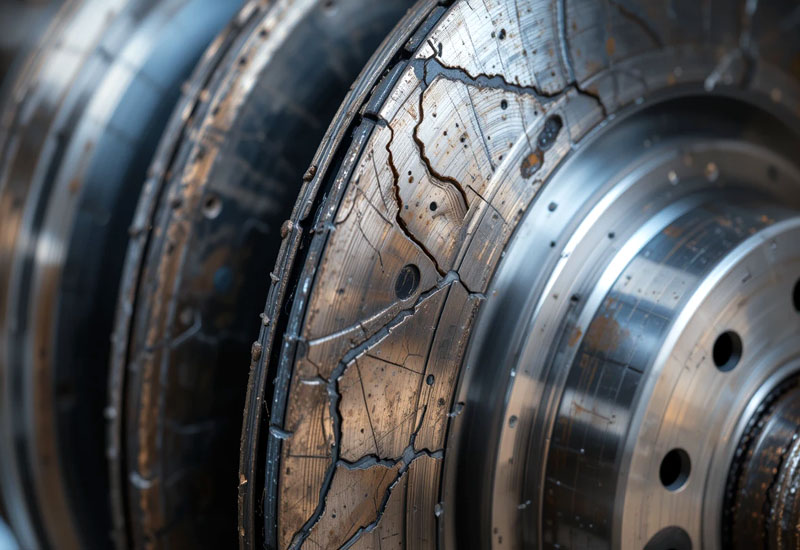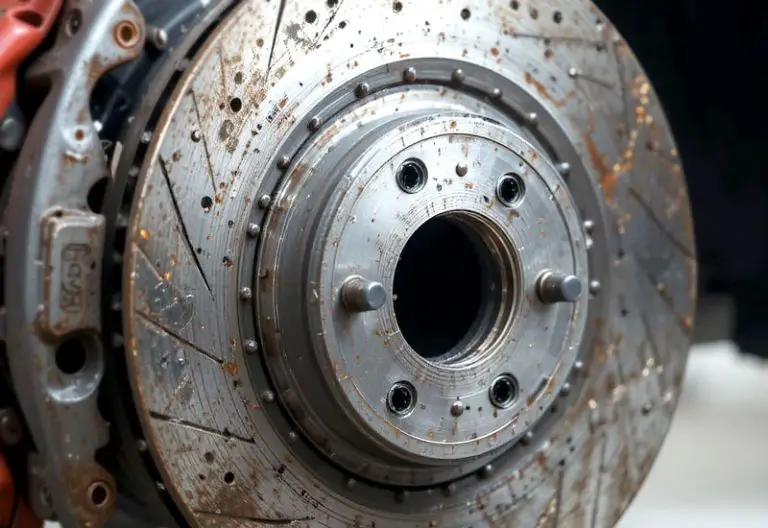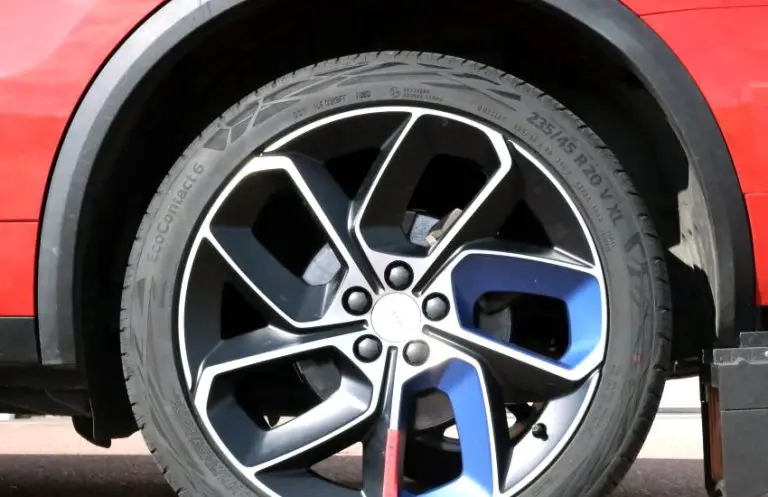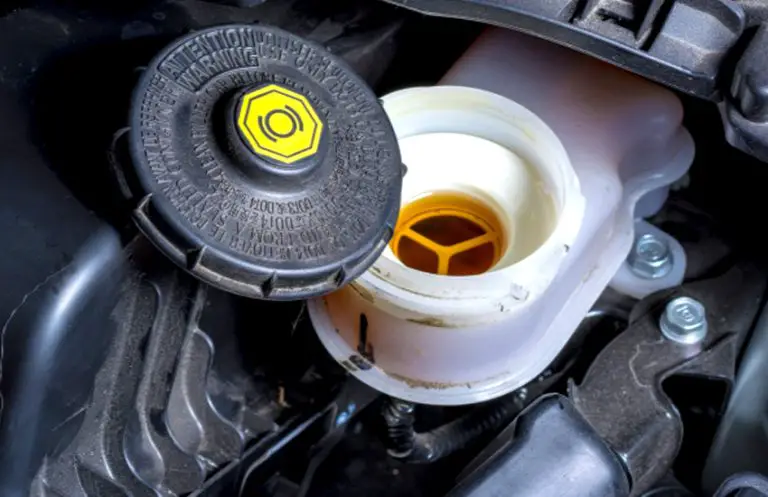Ever felt that weird, unsettling vibration in your steering wheel when you’re cruising at high speeds? If yes, you might be dealing with warped rotors. But what exactly does that mean? And more importantly, can it actually cause your car to shake at those high speeds? Well, buckle up because we’re diving deep into the world of warped rotors, their impact on your car, and how to deal with them.
Understanding Warped Rotors and High-Speed Vibration
So, you’re driving along the highway, enjoying the ride, when suddenly your steering wheel starts to shake. The faster you go, the worse it gets. It’s enough to make you wonder, what on earth is going on with your car? You might be dealing with something called “warped rotors.” It sounds a bit technical, but don’t worry, we’re going to break it down in simple terms. A warped rotor can definitely cause vibrations at high speeds, but there’s more to the story. Let’s explore why this happens, how to spot it, and what you can do about it. So grab a cup of coffee, sit back, and let’s get into it!

The Role of Rotors in Your Vehicle’s Brake System
Before we can dive into warped rotors, let’s first understand what rotors actually do in your car. Picture this: you’re driving, and you press the brake pedal. What happens next is that the brake pads press down on the rotors, which slows down your car and brings it to a stop. The rotors are those large, flat discs (usually made of metal) that are connected to your car’s wheels. Without them, the brake pads wouldn’t have anything to grip onto, and stopping your vehicle would be a major problem.
Now, for rotors to do their job properly, they need to be smooth, flat, and in good condition. If they’re damaged or have an uneven surface, it can lead to serious problems when braking, including vibrations at high speeds. This is where the concept of “warped rotors” comes in.
What Does it Mean When Rotors Are “Warped”?
So, you may have heard the term “warped rotors” thrown around, but what does it actually mean? When rotors become warped, it means that their surface is no longer smooth or even. Over time, due to excessive heat from braking or other factors, the metal of the rotor can distort and become uneven. This warping can occur in different ways – some areas might be thicker than others, or the entire rotor could have a slight bend.
You might be wondering, how does this happen? Well, think about the heat generated when you press the brakes. Your rotors get really hot, and when they cool down quickly (especially if they’re exposed to cold air or water), the metal contracts unevenly. This sudden temperature change can cause the rotor to warp. It’s like trying to bend a piece of metal after it’s been heated up. Not the best idea!
But don’t worry too much yet – warped rotors don’t always cause immediate issues. However, over time, they can lead to problems like vibration, noise, and even reduced braking performance. So, let’s dive into how warped rotors actually cause those annoying vibrations.
Symptoms of Warped Rotors While Driving at High Speeds
Now that you know what rotors do and what it means for them to be warped, let’s talk about how this shows up in real life. One of the most common symptoms of warped rotors is vibration. This usually happens when you’re driving at higher speeds and you start to feel your steering wheel or brake pedal shaking. If you’ve ever experienced this, you know it’s not just annoying – it can also be a little scary.
The vibration happens because the warped rotor is no longer perfectly flat. When you press on the brake pedal, the brake pads have to grip onto the uneven surface, which causes the car to shake. The faster you go, the more noticeable the vibration becomes. In some cases, the vibration may even be strong enough to make the whole car feel unstable, especially if you’re braking hard.
But here’s the thing: vibrations caused by warped rotors aren’t limited to just the steering wheel. You might also feel vibrations in the brake pedal itself. It’s like the car is telling you that something’s off with the braking system.
How Warped Rotors Affect Vehicle Performance and Handling
It’s not just about the annoying vibration you feel in the steering wheel. Warped rotors can actually affect your car’s overall performance and handling. When the rotors are warped, your braking system becomes less efficient. Instead of smoothly slowing down the car, the uneven surface of the rotor creates an inconsistent braking force. This can lead to longer stopping distances and less control over your vehicle.
Another issue is that the warping of rotors can cause uneven wear on your brake pads. The pads may not contact the rotor evenly, which leads to quicker and more uneven wear. This can make your brake pads wear out faster and require replacement sooner than expected.
In some cases, if the rotors are severely warped, they might even cause damage to other parts of the braking system, such as the calipers or the suspension. So, while the vibration may be the first sign that something’s wrong, don’t ignore it. It could lead to more expensive repairs down the road.
Can Warped Rotors Cause Vibration? Exploring the Connection
Now, let’s get to the heart of the matter: can warped rotors really cause vibrations at high speeds? The answer is a resounding “yes.” When your rotors become warped, they no longer provide a smooth surface for the brake pads to grip onto. As you press on the brake pedal, the uneven surface causes the car to shake and vibrate. The faster you go, the more pronounced the vibrations become.
Think about it like this: imagine you’re trying to spin a wobbly wheel. It’s not going to spin smoothly, right? The same concept applies to your rotors. When they’re warped, they disrupt the smooth rotation of your wheels, leading to vibrations that you feel in the steering wheel, brake pedal, and sometimes the whole car.
Interestingly, vibrations caused by warped rotors often occur when you’re braking at higher speeds. At slower speeds, the difference in rotor thickness might not be as noticeable, so you might not feel the vibration as strongly. But once you reach highway speeds and press on the brakes, the uneven surface of the rotor really starts to make itself known.
How to Identify if Your Rotors Are Warped
If you’re starting to notice vibrations in your car, you might be wondering how to figure out if your rotors are warped. The first thing you can do is check for the obvious signs, like shaking in the steering wheel or brake pedal. But to get a clear answer, you might need to get under the car and inspect the rotors.
Here are a few signs to look for:
- Vibration when braking: If you notice vibrations when you press the brake pedal, it could be a sign that your rotors are warped.
- Grooves or scoring: Inspect the surface of the rotors for grooves or deep scratches. This can indicate wear or warping.
- Uneven wear on brake pads: If your brake pads are wearing unevenly, it might be a sign that the rotors are causing inconsistent braking pressure.
- Visible warping: In some cases, you might be able to spot visible warping on the rotor itself, like areas that look thicker than others.
Of course, if you’re not sure, it’s always a good idea to have a mechanic take a look. They can measure the rotors’ thickness and check if they’re warped or uneven.
Preventing and Fixing Warped Rotors: What You Need to Know
Now that we understand how warped rotors can cause vibration and other issues, let’s talk about how to prevent them and fix the problem if it happens. Preventing warped rotors starts with regular maintenance. Make sure your brake pads are in good condition and replace them when necessary. If the pads are worn down too much, they can put extra stress on the rotors, causing them to warp.
Another tip is to avoid heavy braking when possible. Slamming on the brakes repeatedly can generate a lot of heat, which increases the likelihood of the rotors warping. If you have to brake hard, try to give your brakes a little time to cool down between stops.
If you’re already dealing with warped rotors, the good news is that they can often be fixed. In some cases, a mechanic can “resurface” the rotors, which involves grinding down the surface to make it smooth again. However, if the warping is too severe or if the rotors are too thin, replacement might be necessary.
Frequently Asked Questions
Is it possible to drive with warped rotors?
Yes, you can technically drive with warped rotors, but it’s not recommended. Warped rotors can lead to poor braking performance, which could be dangerous, especially at high speeds.
Can warped rotors cause uneven tire wear?
Yes, warped rotors can cause uneven tire wear, especially if they’re affecting the alignment or balance of the vehicle.
Do I need to replace all my rotors if one is warped?
Not necessarily. If only one rotor is warped, you may only need to replace that one. However, it’s often recommended to replace rotors in pairs (front or rear) for balance and safety.
Is it safe to drive with vibrating brakes?
Driving with vibrating brakes is not safe. It indicates a problem with your braking system, which could lead to longer stopping distances and reduced control over your vehicle.
Can I fix warped rotors myself?
If you have the right tools and experience, you can attempt to resurface the rotors yourself, but it’s usually best to let a professional handle it to ensure the job is done correctly.
Is it cheaper to repair or replace warped rotors?
Replacing warped rotors is typically more expensive than resurfacing them, but it depends on the severity of the warping and the cost of replacement parts.
Can warped rotors cause brake noise?
Yes, warped rotors can cause brake noise, such as squealing or grinding, especially if the warping is severe.
Do I need to replace my brake pads if my rotors are warped?
If your rotors are warped, it’s a good idea to check your brake pads. If they’re worn unevenly, it’s best to replace them along with the rotors.
I hope this deep dive into warped rotors and high-speed vibration has helped clear up any confusion. If you’re feeling those annoying vibrations in your car, it might be time to check your rotors. Early detection and proper maintenance can save you time, money, and a whole lot of headaches down the road!


